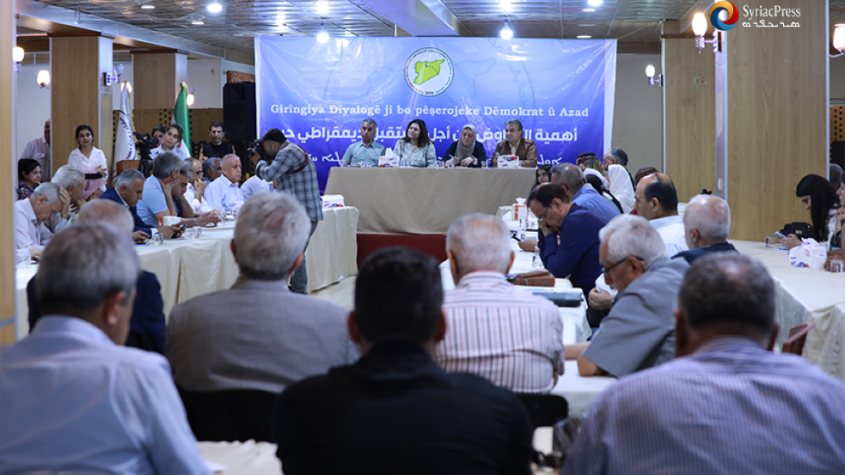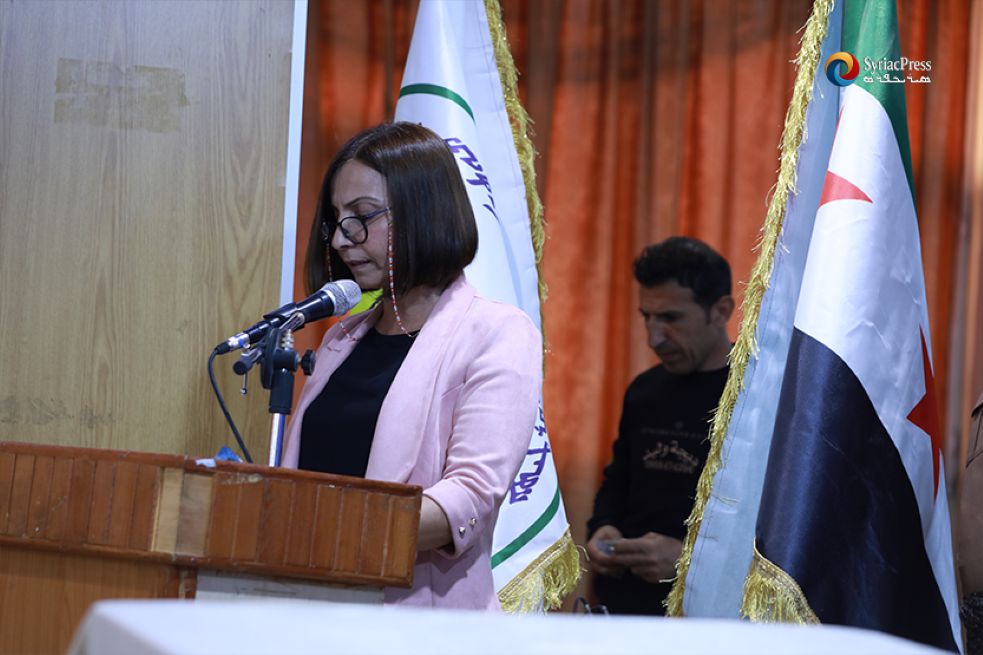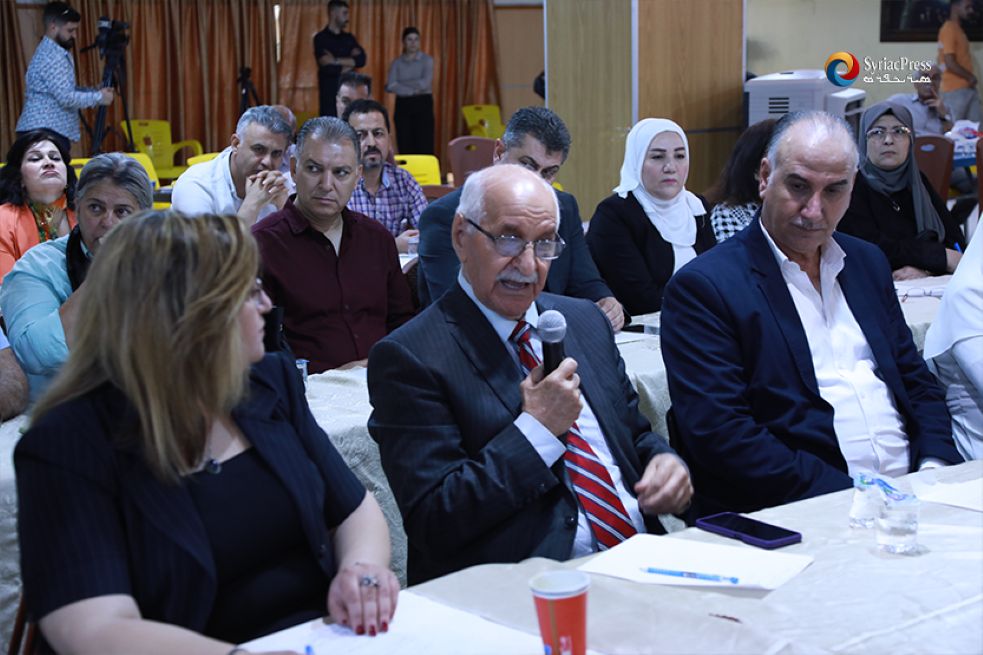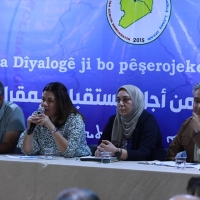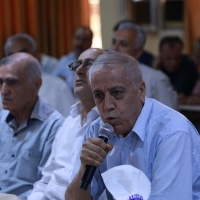Syrian Democratic Council Forum in Zalin Highlights Unity Amid Heated Debate
ZALIN, North and East Syria – Under the banner “Importance of Negotiation for a Free and Democratic Future”, the Syrian Democratic Council’s (SDC) Public Relations Office convened a spirited forum on Saturday in the city of Zalin (Qamishli). The gathering brought together Syriac, Kurdish, and Arab community representatives, political stakeholders, and civil society leaders to address three pillars of concern: the state of negotiations with Daramsuq (Damascus), the future of education, and the building of cross-community alliances.
The forum unfolded against a backdrop of regional uncertainty, with North and East Syria continuing to grapple with stalled political processes and delicate social fabrics in the Syrian territories. Nevertheless, the SDC emphasized unity and dialogue as indispensable tools for shaping a democratic future.
Three keynote speakers opened the floor with detailed perspectives on their respective fields. Foza Yusif, a member of the negotiating team of the Democratic Autonomous Administration of the Region of North and East Syria (DAARNES), outlined the complexity of ongoing dialogue with the Syrian Transitional Government (STG) in Daramsuq (Damascus). She acknowledged some technical progress, while noting that internal challenges and a lack of political consensus remain stumbling blocks to deeper engagement.
Samira Haj Ali turned the conversation toward educational reform, stressing the importance of a culturally inclusive curriculum. “Our educational system must reflect the pluralism of Syrian society. That begins by engaging teachers, parents, and communities in shaping a system that respects linguistic and cultural identities,” she said.
Khabbat Aliko, a member of SDC’s Presidential Council, emphasized the necessity of political coalition-building across ethnic and ideological lines.
Though the forum’s overall tone remained hopeful, it was not without pointed interventions from local voices. One of the most impassioned came from community activist Abdulmasih Kuryakos, who was imprisoned for 17 years by the former Ba’ath regime and, according to him, witnessed lots of torture and killings inside the regime prison, who urged the SDC to actively bridge widening communal divides.
“Our province is divided vertically,” he said. “On one side, a Kurdish base that resents anything connected to Arabs. On the other, an Arab popular base that rejects the entire project. This is a grave mistake. We are one people, one humanity, one heart.”
Drawing on his deep ties to Zalin’s diverse communities, Kuryakos shared that his group had formed a local initiative to promote unity and mutual respect across sectarian and ethnic lines. He called on the Autonomous Administration to engage more directly with Arab populations in the region:
“The Arab public here respects Sharia and feels excluded from current initiatives. We must reach out to them—not impose decentralization as something demanded only by the Kurdish side, but offer it as a shared solution discussed through dialogue. He continued, “Let us sit with them. Ask: What do you want? What are your concerns? Maybe we can convince them of the benefits of decentralization—not through force or slogans, but through listening and shared reasoning.”
In a follow-up interview, SDC Public Relations Hassan Muhammad Ali affirmed the need for such grassroots engagement. “We are still at the beginning,” he said. “But our goal is for all Syrians—Arabs, Kurds, Syriacs—to have clarity on where the negotiations stand and to contribute actively. That is the only way to build a roadmap for real change.”
Ali continued by saying “Constructive partnerships among democratic forces— Syriac, Kurdish, Arab, and beyond—are essential to establishing a common platform for negotiations,”. He also pointed out that SDC’s recent local agreements in Sheikh Maqsoud and at Tishrin Dam as signs that cooperation, even on a limited scale, can produce tangible outcomes.
Bashir Ishaq Saadi, deputy of the Assyrian Democratic Organization, expressed support for a pluralistic outcome. “We advocate for a secular, democratic Syria in which all national components—Arabs, Kurds, Assyrians, Syriacs, Turkmen, Armenians—enjoy equal rights under a unified national identity.”
As the forum concluded, many attendees voiced cautious optimism that such gatherings could help rebuild trust, reduce polarization, and move the region toward a more inclusive and representative political settlement.

